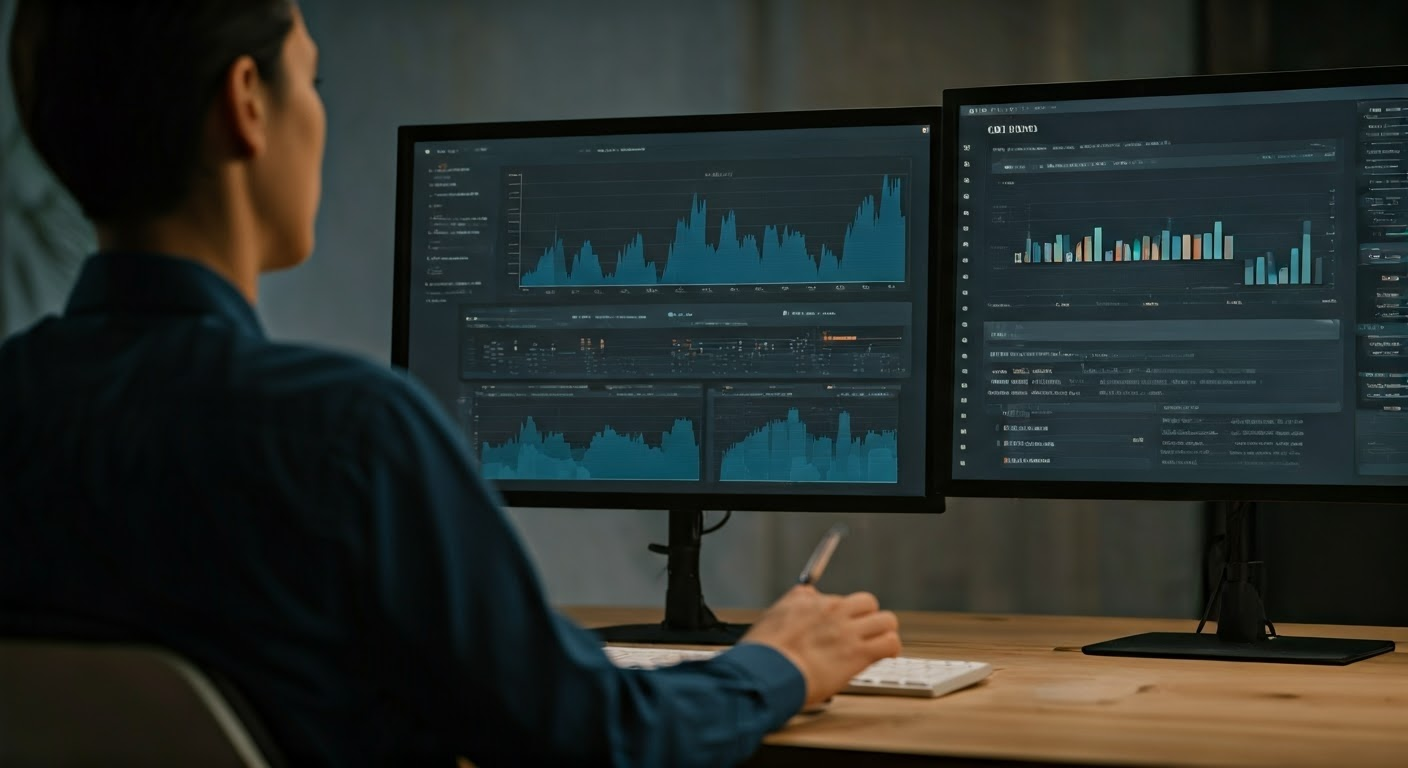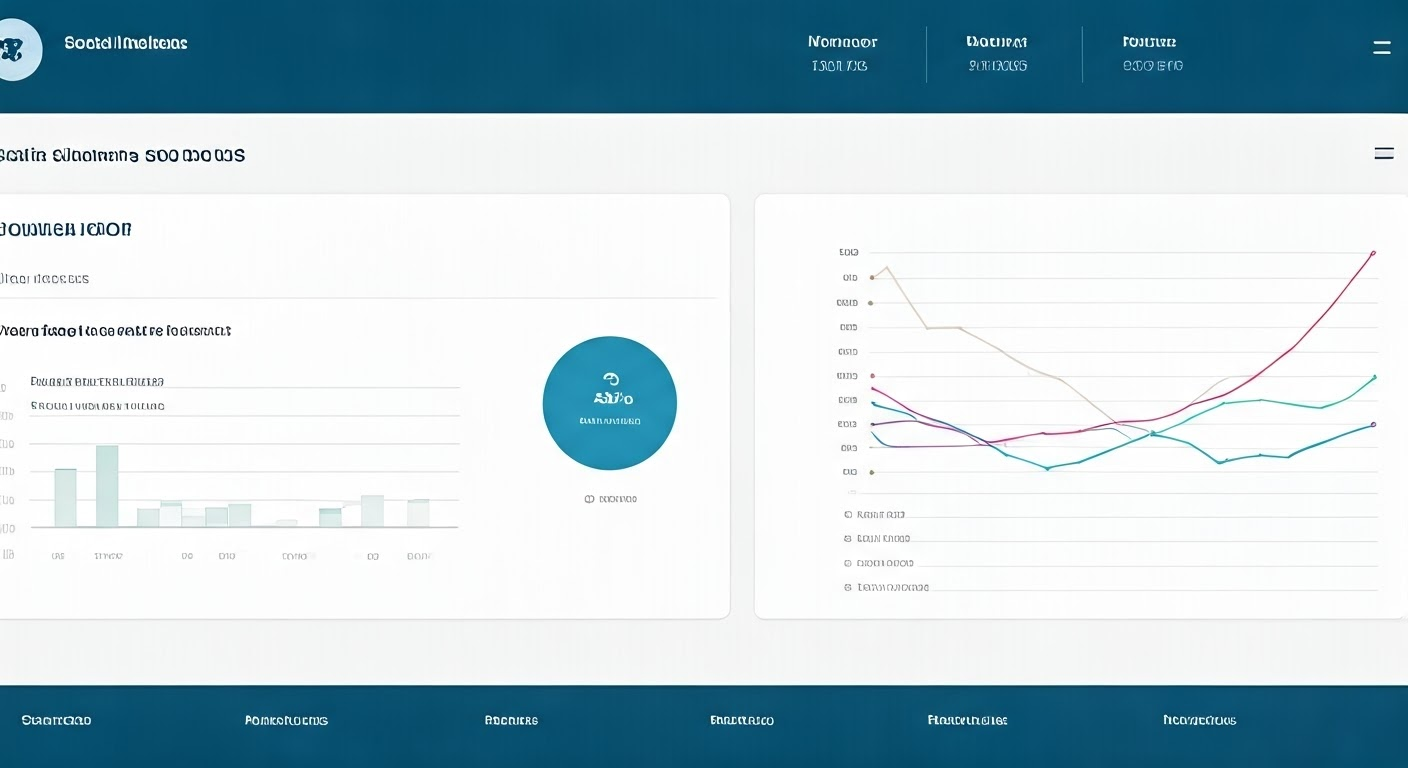
Key Highlights
- Discover the top 10 actionable SEO strategies for 2025, ensuring your website stays ahead in the competitive landscape.
- Learn how mobile-first optimization, user experience improvements, and advanced content marketing can transform your online visibility.
- Explore the importance of targeted semantic keywords and structured data for featured snippets in Google search results.
- Understand the role of video content, high-quality backlinks, and local SEO for geographic targeting to boost rankings.
- Gain insights into leveraging user intent, performance monitoring, and social media platforms for a comprehensive SEO game plan.
Get ready to dive into proven methods that will elevate your SEO strategy for long-term success!
Introduction
Staying on top in digital marketing means you must follow changing SEO trends and what users want. In 2025, SEO is very centered on user experience, search intent, and using the latest tools. Websites that use mobile-first strategies or optimize for voice search will do better in search engine results in the long term. This blog shows you helpful ways to master SEO and grow your organic traffic. Let’s look at the strategies that can help you get higher rankings and attract valuable traffic to your site.
Top 10 Proven SEO Strategies for 2025
 SEO has changed. It’s not just about keywords anymore. Now, it’s about giving real value to users and keeping search engines happy. The main strategies for 2025 focus on creating easy and engaging experiences on various platforms. You should think about mobile-first design and targeting keywords that have meaning. The important thing is to understand how users behave and use techniques that match their needs. Read more to see how these strategies can boost your search engine rankings and build your brand’s authority online.
SEO has changed. It’s not just about keywords anymore. Now, it’s about giving real value to users and keeping search engines happy. The main strategies for 2025 focus on creating easy and engaging experiences on various platforms. You should think about mobile-first design and targeting keywords that have meaning. The important thing is to understand how users behave and use techniques that match their needs. Read more to see how these strategies can boost your search engine rankings and build your brand’s authority online.
1. Focus on Mobile-First Optimization
Mobile devices lead the way in search queries, so using a mobile-first approach is very important. Google now ranks websites by how well they work on mobile. This means your website must be fast and responsive to give a good user experience on smaller screens.
Start by testing your website on different mobile devices. You can use tools like Google Search Console to find problems that affect usability. Make your site’s layout simple for easy navigation and quick loading for mobile users.
Pay attention to core web vitals, such as page speed, interactivity, and visual stability. These factors impact search engine rankings. A fast and responsive mobile site not only gets better ranks on Google but also keeps visitors interested longer, which helps to lower bounce rates. Optimizing for mobile isn’t a choice anymore; it’s a key part of the digital landscape in 2025.
2. Emphasize User Experience (UX) Across Your Site
Creating a great user experience (UX) is very important for search engine optimization (SEO). This means making easy-to-use navigation, nice-looking web pages, and designs that work well on different devices. When your website matches what users want and need, engagement goes up. This can lead to higher rankings on search engine results pages.
Adding core web vitals to your site also improves UX. Keeping loading times fast, optimizing for mobile, and ensuring smooth interactions make people happier with your site. This can really affect the organic search traffic your site gets.
3. Target Semantic Keywords and Search Intent
Keyword research in 2025 is not just about choosing keywords. It needs you to know semantic keywords. These are words and phrases that match what the user is looking for.
Start by looking at how your audience behaves. Are they asking questions? Use tools like Google Keyword Planner to find different ways people might search for your main keywords. For example, instead of saying “content marketing,” you could use “how to create shareable blog posts.” The first step is understanding these search queries.
It is important to match search intent. If people want tutorials, make your content easy to follow with steps or lists. If they have transactional questions, give quick and clear answers. By adjusting your SEO content to these details, you will have a better chance of improving your search rankings. Semantic keywords help search engines understand the context of your content. This makes it crucial for getting noticed.
4. Optimize for Voice Search
Voice search is changing how people use search engines. Devices like Alexa and Google Assistant prefer questions that sound like natural conversations. This means you need special SEO tactics.
- Use everyday language that feels normal.
- Pay attention to longer keywords that reflect questions, like “What are the best SEO tips for blogs?”
- Focus on structured data to help voice-activated devices find your content.
Also, make sure your site works well on mobile devices. Many voice searches happen on phones, so being mobile-friendly keeps users interested. It’s important to understand how voice questions work in Google search to get featured snippets and improve your rankings. To reach this growing group, use a voice-friendly approach.
5. Implement Structured Data for Rich Snippets
Structured data is very important for getting rich snippets on Google search results pages. By using schema markup, you give search engines more information, which helps your site get noticed more.
Start by adding schema types that match your content. This can be “FAQ,” “Article,” or “Product.” Structured data helps show what you want to search engines. You can use tools like Google’s Structured Data Testing Tool to check if everything is correct.
Rich snippets, created with structured data, are more than just regular blue links. They show star ratings, event dates, or FAQ answers, which can lead to more clicks on your site. Being featured in the main snippet section not only increases your click-through rate but also builds your authority in your field. Using schema markup is a must for anyone aiming for top rankings in 2025.
6. Enhance Content Quality and Depth
Content marketing changes based on what users want. By 2025, simple and generic content will not be enough. Search engines will look for useful answer engines and well-researched information that fully meets audience needs.
You should create cornerstone content. These are long guides or articles that show your website’s expertise in a subject. Connect in-depth research with engaging writing to answer specific questions users may have.
Use targeted headings, schema markup, and useful keywords to make your piece of content easy to read. Using SEO content strategies can boost your visibility in search engine results. This way, your articles reach the right audience. High-quality, detailed SEO content will make your digital marketing stronger and help you keep good rankings over time.
7. Build Diverse and High-Quality Backlinks
Link building is very important for SEO success. When you get high-quality backlinks from well-known websites, it makes your site look trustworthy and helps it rank better in search results.
Try different strategies, like using the skyscraper technique. This method helps you create valuable pages that others want to link to. You can also write guest posts for respected sites in your area. This way, you can gain important backlinks.
It’s also key to focus on anchor text relevancy. Good anchor texts not only make things easier for users but also help search engines understand what your page is about, especially with effective internal linking strategies. Mix up your link-building strategies, but remember to always choose quality over quantity. This will help maintain your visibility on search engines in the long run.
8. Utilize Video Content for Better Engagement
Video content is the best way to boost user engagement and help with SEO. Good videos keep people watching longer, which shows search engines that your content is helpful.
You can use video content to explain topics, share case studies, or give tutorials. Websites like YouTube are important for getting your brand seen and for creating opportunities for external links, since videos are often shared on other sites.
Make sure that your video file names, descriptions, and transcriptions have the right keywords. As video results are now part of Google’s search engine results, this SEO strategy is essential for anyone wanting to improve their digital marketing success.
9. Prioritize Local SEO for Geographic Targeting
Local SEO is crucial for businesses that want to be seen in certain areas. Google Search Console and tools like Google My Business are very important for this.
When you do local SEO, focus on using keywords that include your location. Include details like your business hours and address. Getting reviews and testimonials on sites like Yelp is also very important for local rankings.
Local SEO helps you get better search rankings. It can bring more customers to your store and build trust in your community. For shops and service providers that want local customers, mastering this strategy is essential in 2025.
10. Monitor Performance and Adjust Strategies Regularly
 SEO strategies need regular checks to work well. Tools like Google Analytics and search engine dashboards help you see what is working and what needs fixing.
SEO strategies need regular checks to work well. Tools like Google Analytics and search engine dashboards help you see what is working and what needs fixing.
Look at important metrics like website traffic, user engagement, and conversion rates. This information helps you make changes to stay in tune with what your audience wants and with SEO trends.
Use ranking data from tools like Google Search Console often. Find any SEO errors, such as duplicate content or broken links, and change your strategy if you want to discover new pages as needed. Keep evaluating and adjusting to protect your place in the competitive search engine world.
Move on to the next part to learn keyword research that helps improve your rankings.
Advanced Keyword Research Tactics
Identifying the right keywords means using both what users want and their search queries to improve your SEO strategies. You can use tools like Google Ads, Google Keyword Planner and Google Search Console to find important details about popular keywords and how often people search for them. By targeting long-tail keywords, website owners can increase their organic traffic. These specific queries often show stronger intent from users. Also, using methods like competitive analysis can help you understand the keyword scene. This can lead to creating content that connects well with your target audience.
Understanding Long-Tail vs. Short-Tail Keywords
Long-tail keywords are specific phrases. They better show what users want compared to short-tail keywords, which are more general. Short-tail keywords may bring more search traffic, but long-tail keywords often lead to higher conversion rates. This is because they match targeted search queries better. Users who use long-tail phrases usually have a clear intent. They are looking for specific answers or solutions.
Understanding the difference between these keyword types is important. It can help with content optimization. This will boost both organic traffic and search engine rankings for many web pages.
Tools and Techniques for Effective Keyword Discovery
Using advanced tools greatly improves the process of finding keywords. Tools like Google Keyword Planner and SEMrush give important information about search queries. They help find both long-tail and short-tail keywords that match user intent. Keyword research methods, such as looking at competitors and checking content gaps, help website owners find ways to improve their search engine rankings and achieve higher Google rankings. Using these strategies helps to create content marketing plans that connect with the target audience. This, in turn, increases organic traffic and boosts overall SEO success.
Boosting Site Speed for Enhanced SEO

Making sure your site loads quickly is very important for better SEO results. Fast web pages improve user experience and help your site rank higher in search engines. A website that loads fast keeps visitors longer, which lowers bounce rates and increases engagement. Using tools like Google PageSpeed Insights can show you where your site needs to get faster and how to fix those areas. When your site performs well, you will likely get more organic traffic since search engines prefer sites that meet user intent quickly. By focusing on page speed, website owners can greatly improve their visibility and presence online.
Importance of Fast Loading Times
Fast loading times are very important for keeping users interested and improving search engine rankings. Users expect web pages to load quickly. If they take too long, many will leave the site, which can lower organic traffic. Search engines, like Google, favor fast websites in their rankings and use Core Web Vitals to measure this speed. When website owners work to improve page speed, they not only make user experience better but also get ahead of their competition in digital marketing. Overall, focusing on loading times helps achieve SEO success.
Practical Tips for Increasing Website Speed
Optimizing your website speed is very important. It helps improve user experience and increase search engine rankings. One way to do this is by using a content delivery network (CDN). A CDN helps share your content easily, which can cut down load times in different areas.
You should also compress images and minimize HTTP requests. This can really help boost how well your site performs. Tools like Google PageSpeed Insights can help you find problems and track your core web vitals.
Make sure to regularly update your website’s software and plugins. This keeps everything compatible and removes any unnecessary items. In the end, this can lead to faster loading times and better user engagement.
Effective Link Building Strategies

Building good backlinks is key for improving your SEO rankings. This means you need to create valuable content that naturally gets outside links. Doing guest blogging can also help you show your expertise. The skyscraper technique can help you find the best content to copy. Plus, connecting with influencers and joining relevant communities can create chances for links. It’s important to avoid mistakes like keyword stuffing or using links that do not make sense. This way, your link building works well and stays in line with search engine rules.
Techniques for Gaining High Authority Links
Building high-quality internal links is important for improving search engine rankings. A good way to do this is by creating valuable content. This type of content will attract external links naturally and meet user intent, which can also boost brand awareness. Reaching out to influencers on social media platforms can help increase link-building chances. Additionally, using resource pages or writing guest posts on well-known sites can help grow organic traffic and make your website more trusted. By using these strategies, you can improve your link profile and increase your chances of ranking higher in search console results.
Avoiding Common Link Building Mistakes
Link building is important for improving search engine rankings. However, there are common mistakes that can hurt your SEO success. One mistake is paying too little attention to the quality of backlinks. Focusing only on quantity can give you bad links that damage your site’s authority. Another issue is not having a variety of link sources, which might decrease your organic traffic. Misusing anchor text by changing it too much can lead to penalties. Lastly, if you do not check link performance with tools like Google Search Console, you may miss chances to improve. Knowing about these errors is key for making good link building strategies.
Leveraging Social Media for SEO
 Using social media the right way can greatly help your search engine optimization. When people like and share your posts, it boosts brand awareness and can impact your search engine results. Connecting with your target audience on sites like Facebook, Twitter, and Instagram not only brings in more visitors but also increases user engagement. This tells search engines that your content is relevant and valuable. To improve your online presence, share quality content and use good hashtags. This can lead to better organic search traffic.
Using social media the right way can greatly help your search engine optimization. When people like and share your posts, it boosts brand awareness and can impact your search engine results. Connecting with your target audience on sites like Facebook, Twitter, and Instagram not only brings in more visitors but also increases user engagement. This tells search engines that your content is relevant and valuable. To improve your online presence, share quality content and use good hashtags. This can lead to better organic search traffic.
How Social Signals Impact SEO
Engagement metrics from social media platforms can strongly affect search engine rankings. When people share and comment on posts, it shows they find value in the content. This can lead to more organic traffic. Also, having a strong presence on social media helps improve brand awareness. This, in turn, can lead to more search queries about your brand. Quality content that is shared widely also matches user intent better. This helps it work well with search engine algorithms. Social signals show credibility, which can help push content up in search results. This creates a loop of better visibility and user engagement.
Best Practices for Social Media Optimization
Creating engaging and shareable content is important for good social media. Posts that connect with your target audience increase user engagement and help bring in search traffic. Use keywords in a seamless way and add eye-catching images to improve interaction. Sharing valuable content on social media platforms boosts brand awareness and can help improve SEO rankings by getting more external links to your site. Check performance metrics with tools like Google Analytics to adjust your strategy. This will make sure your work meets search intent and improves the user experience.
Conclusion
Successful navigation through the changing world of search engine optimization depends on keeping up with new trends and best practices. Website owners can attract organic traffic by using great keyword research strategies, improving user experience, and making the most of social media. Focusing on site speed, good link building, and creating quality content helps achieve higher rankings in search engine results, as discussed on Search Engine Land. When these strategies are in place, they not only improve visibility but also engage the target audience. This ensures SEO success as we move into 2025.
Frequently Asked Questions
What is the most important SEO strategy for 2025?
In 2025, the key SEO strategy focuses on user experience (UX). A website that is easy to use, loads fast, and works well on mobile will rank the highest. Providing valuable content adds to this experience. By prioritizing UX, websites can have better engagement and keep visitors longer, which leads to improved SEO performance.
How does mobile-first optimization affect SEO?
Mobile-first optimization is important for SEO because it focuses on responsive web design and quick loading times. Websites that work well on mobile devices get better rankings in search results. Search engines now see mobile usability as a key factor for ranking. This improves user experience and keeps people engaged on smaller screens.
What are the benefits of using structured data in SEO?
Structured data helps SEO by giving search engines clear information about your content. This makes your site more visible in search results. As a result, you could get rich snippets and higher click-through rates. This also improves user experience. In short, structured data boosts rankings and effectively increases organic traffic.
Can social media directly influence my website’s SEO rankings?
Social media can affect SEO rankings in a roundabout way. It does this by bringing in traffic and creating engagement, which shows search engines that the content is good. Although social signals might not directly change rankings, having a strong social presence helps build brand awareness and create links. These factors can lead to better visibility in search results.
Conclusion: Staying Ahead in SEO
To stay ahead in SEO, you need to change with the times. This means keeping up with new algorithms and how users behave. Update your strategies often. Focus on creating quality content and use data analytics. By knowing the latest industry trends, you can make sure your methods work well and stay important for the long run.
Adapting to Continuous Algorithm Changes
To keep up with constant changes in algorithms, you should check for updates from search engines often. Change your strategies based on these updates. Use data to make smart choices, improve your content quality, and boost user engagement. Staying updated will help you keep your rankings and make your site better overall.
